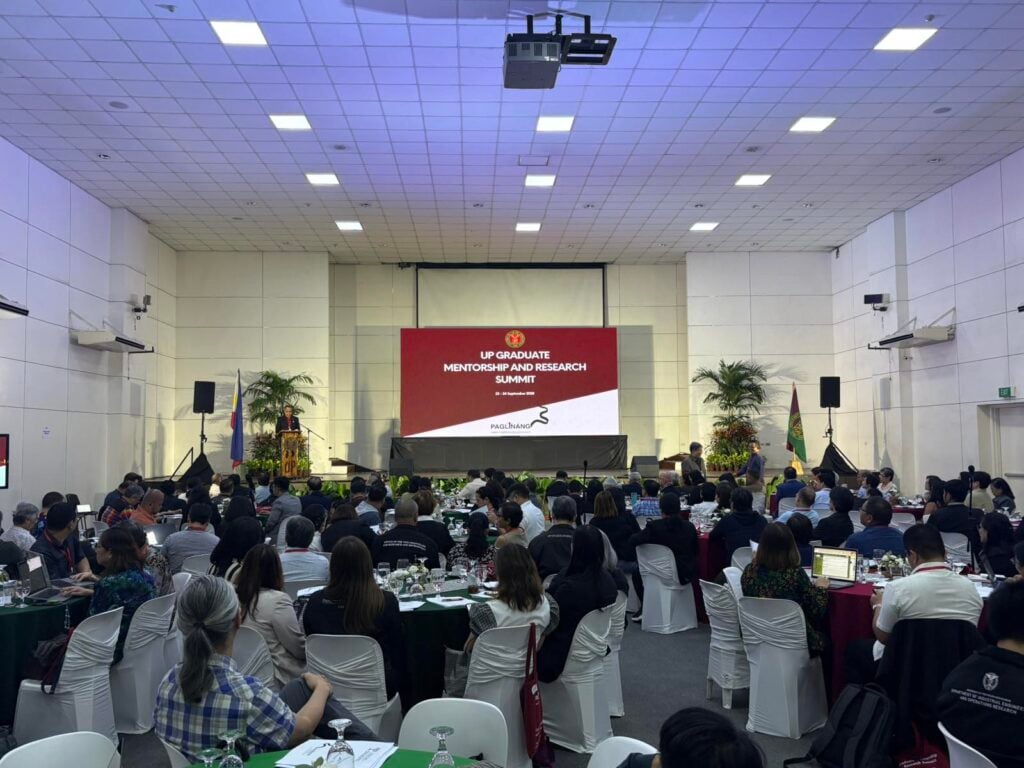UP holds system-wide summit to assess and advance PhD mentoring and research initiatives

The UP Graduate Mentorship and Research Summit opened today, September 23rd, at the GT-Toyota Asian Center in UP Diliman. A total of 150 deans, directors, chancellors, vice chancellors, and other academic leaders from across the UP System attended the event.
With the theme “Strengthening UP’s Leadership as the Country’s Premier Graduate, Research, and Public Service University: Policies, Programs, and Pathways Forward,” the two-day event underscores the University’s commitment to reviewing its progress in creating a supportive environment for researchers and artists. This is particularly important as Republic Act 9500 of 2008, which designates UP as the national university, nears its 20th anniversary.
As the country’s leading university, UP aims to increase PhD graduates from all fields, who drive innovative, evidence-based solutions to complex national challenges, initiatives that help raise the quality of life for Filipinos. Thus, producing highly skilled PhD graduates not only fulfills UP’s research mandate but also advances its public service mission.
Strengthening UP’s role as the country’s graduate, research, and public service university requires an integrated approach, one that establishes enabling policies for effective PhD mentorship, enhances institutional capacity, and fosters strong collaborations for PhD excellence. The summit seeks to make progress in all three areas by designing better policies, strategies, and institutional structures to guide UP’s actions.
Two workshop sessions will gather insights from the participants.
The first session will revisit policies that promote PhD student mentorship. Improving PhD completion rates requires not only supporting students but also empowering and retaining faculty mentors who can guide them to success. Thus, it is important to enhance faculty development, tenure, and leadership.
The second session will explore ways to foster sustained PhD student supervision systems and collaborative ecosystems. Strong PhD programs rely on a cohesive institutional support where the faculty, REPS, and administrators jointly play a crucial role. Mentoring and collaboration prevent disciplinary silos and slow innovation.
On Day 2, participating academic heads will visit four laboratories in UP Diliman.
With the summit, UP reaffirms its commitment to building the nation’s capacity in the global knowledge economy. It marks another step in sustaining UP’s role as the national university, driving knowledge, innovation, and service for lasting societal impact.
The summit is spearheaded by the Office of the Vice President for Academic Affairs.
